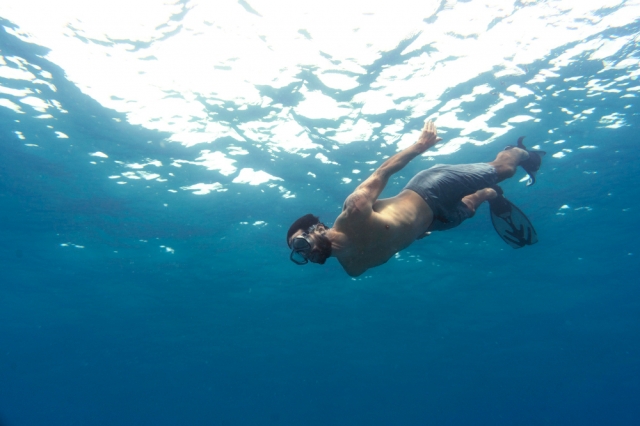Going on your first scuba diving holiday is an exhilarating experience, blending the thrill of underwater exploration with the serenity of marine life observation. To ensure your trip is as enjoyable and safe as possible, it's essential to prepare adequately. This post tells you how you can do just that.
1. Obtain Your Certification
Before you can dive into the depths of the ocean, you need to be certified. The most recognized certification agencies include PADI (Professional Association of Diving Instructors) and NAUI (National Association of Underwater Instructors). These courses cover essential skills, safety protocols, and theoretical knowledge. Certification typically involves a combination of classroom sessions, pool dives, and open water dives, ensuring you're well-prepared for real-world diving scenarios. If this appeals to you, you can find scuba courses on Adventuro that will prepare you for a future of scuba diving.
2. Choose the Right Destination
Selecting the perfect diving destination is crucial for a memorable experience. Popular spots for beginners include the Great Barrier Reef in Australia, the Caribbean Islands, and the Red Sea in Egypt. These locations offer a range of dive sites that are suitable for novices, with clear waters, abundant marine life, and professional diving schools. Research the best times to visit to avoid poor weather conditions and ensure optimal underwater visibility.
3. Assemble Your Gear
While many dive centers provide rental equipment, having your own gear can enhance comfort and confidence. Essential items include a mask, snorkel, fins, wetsuit, and dive computer. Ensure your mask fits well to avoid leaks, and your fins are comfortable for extended use. If you opt for a wetsuit, choose one appropriate for the water temperature of your destination. A dive computer is invaluable for monitoring depth and time underwater, helping you adhere to safe diving practices.
4. Physical and Mental Preparation
Scuba diving demands a certain level of physical fitness and mental readiness. Engage in regular cardiovascular exercises, strength training, and flexibility workouts to build endurance and reduce the risk of cramps. Mental preparation is equally important; practice relaxation techniques like deep breathing and visualization to keep you calm and focused underwater. Additionally, familiarize yourself with basic first aid and CPR in case of emergencies.
5. Plan Your Dive Itinerary
Organize your dive schedule in advance, taking into account your certification level and experience. Start with easier dives to acclimate to the underwater environment before progressing to more challenging sites. Ensure you allow adequate surface intervals between dives to avoid decompression sickness. It's also wise to plan for rest days to prevent fatigue and allow your body to recover.
6. Understand Local Marine Life
Research the marine life you're likely to encounter at your chosen destination. Familiarize yourself with local species, their behaviors, and any potential hazards. Knowing what to expect can enhance your appreciation of the underwater world and help you avoid dangerous encounters. Show respect to marine life by keeping a safe distance and never touching or disturbing creatures or coral reefs.
7. Travel and Health Insurance
Securing comprehensive travel insurance that covers scuba diving is essential. This should include coverage for medical emergencies, evacuation, and any potential dive-related incidents. Check the policy details carefully to ensure all your planned activities are covered. Additionally, some destinations may require specific vaccinations or health precautions, so consult with your healthcare provider well in advance.
8. Stay Hydrated and Eat Well
Maintaining good hydration and nutrition is vital for diving. Dehydration can increase your chances of decompression sickness, so drink plenty of water before and after dives. A balanced diet that is rich in vitamins and minerals will support your physical performance and recovery. Avoid alcohol and excessive caffeine, as these can contribute to dehydration.






